
The NCAER National Data Innovation Centre (NDIC) launched the Gender Hub to envisage using existing data and new data as a vehicle for engaging feminist scholars, civil society representatives, and policymakers. These stakeholders will be invited to undertake and/or guide gender-focused analyses of public policies—both women-focused and gender-neutral—in the economic, health, and educational domains in India. Some of the policies of interest include cash incentives for girls’ education, reducing inequalities in access to health services, and development of a social registry for improving access to government benefits. Activities undertaken by this hub will include enhancing access to data collected by NCAER, visiting fellowships for practitioners and researchers, and seminars addressing strategies for incorporating a gender lens in data collection processes. Sonalde Desai, Professor, and Centre Director, NCAER-NDIC, and Pallavi Choudhuri, Senior Fellow, NCAER-NDIC, will lead this initiative.
The overall goal is to shape a data-focused research agenda in conjunction with our civil society and government partners. The team has unique access to data and statistical skills; civil society partners will offer an understanding of on-the-ground processes to help define policies that deserve evaluation and conditions that may limit policy impact; NCAER’s location within the Indian policy discourse will help to mobilise gender advocates within both the Government and the media to help disseminate the research results and establish policy linkages.

NCAER National Data Innovation Centre Measurement Brief | 2024-03 Welcome to the sixth issue of GenderTalk from the NCAER-National Data Innovation Centre’s Gender Hub. In this issue, we focus on the complex realities of adolescence in India— a critical stage of human development when the pressure on young girls and boys to conform to culturally... Read More
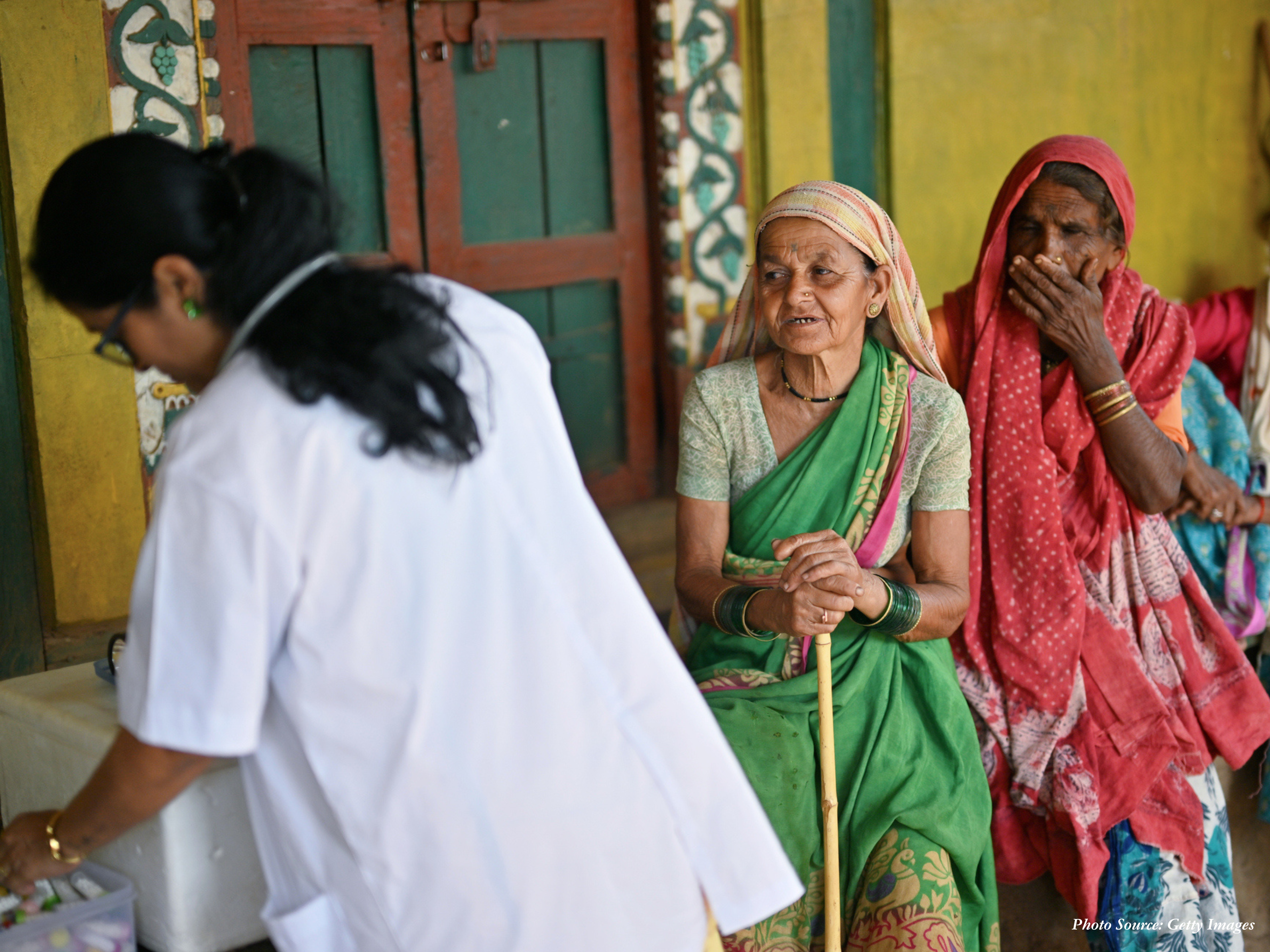
NCAER National Data Innovation Centre Measurement Brief | 2024-02 Welcome to the fifth issue of GenderTalk from the NCAER-National Data Innovation Centre’s Gender Hub. Nancy Folbre and colleagues in the 2005 special issue of Feminist Economics - Gender and Ageing noted that the public discussion on ageing, even in developed countries, has focused more on... Read More
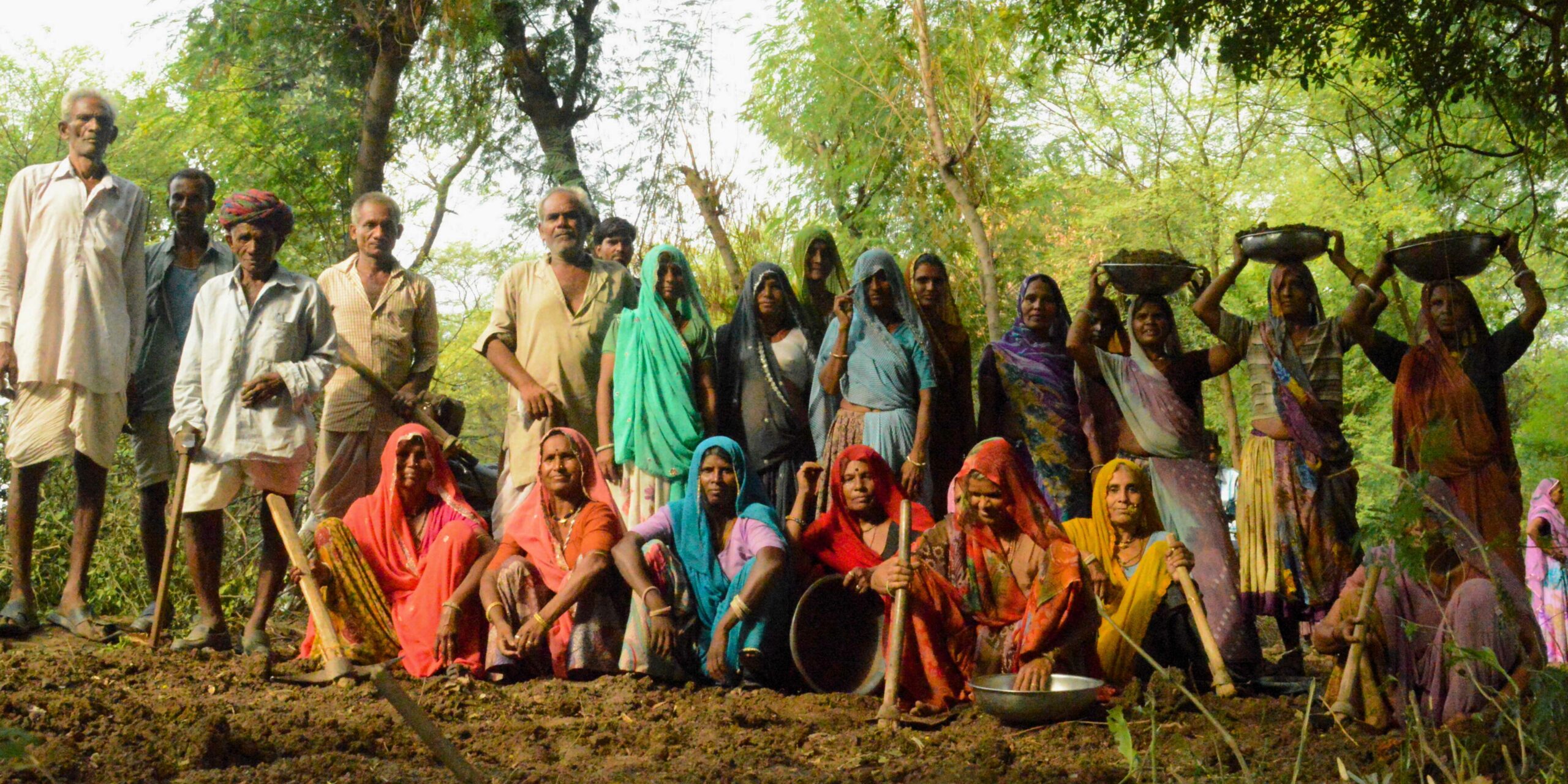
NCAER National Data Innovation Centre Measurement Brief | 2024-01 Welcome to the fourth issue of GenderTalk from the NCAER-National Data Innovation Centre’s Gender Hub. In this issue of GenderTalk, we focus on the gender implications of internal migration in India. The drivers of women’s migration are complex and can include economic and educational opportunities, cultural... Read More

NCAER National Data Innovation Centre Measurement Brief | 2023-03 Welcome to the third issue of GenderTalk from the NCAER-National Data Innovation Centre’s Gender Hub. In this issue of GenderTalk, we discuss women's agency in marriage choice. We bring you articles by researchers that highlight some of the issues, followed by conversation with a practioner. GenderTalk... Read More
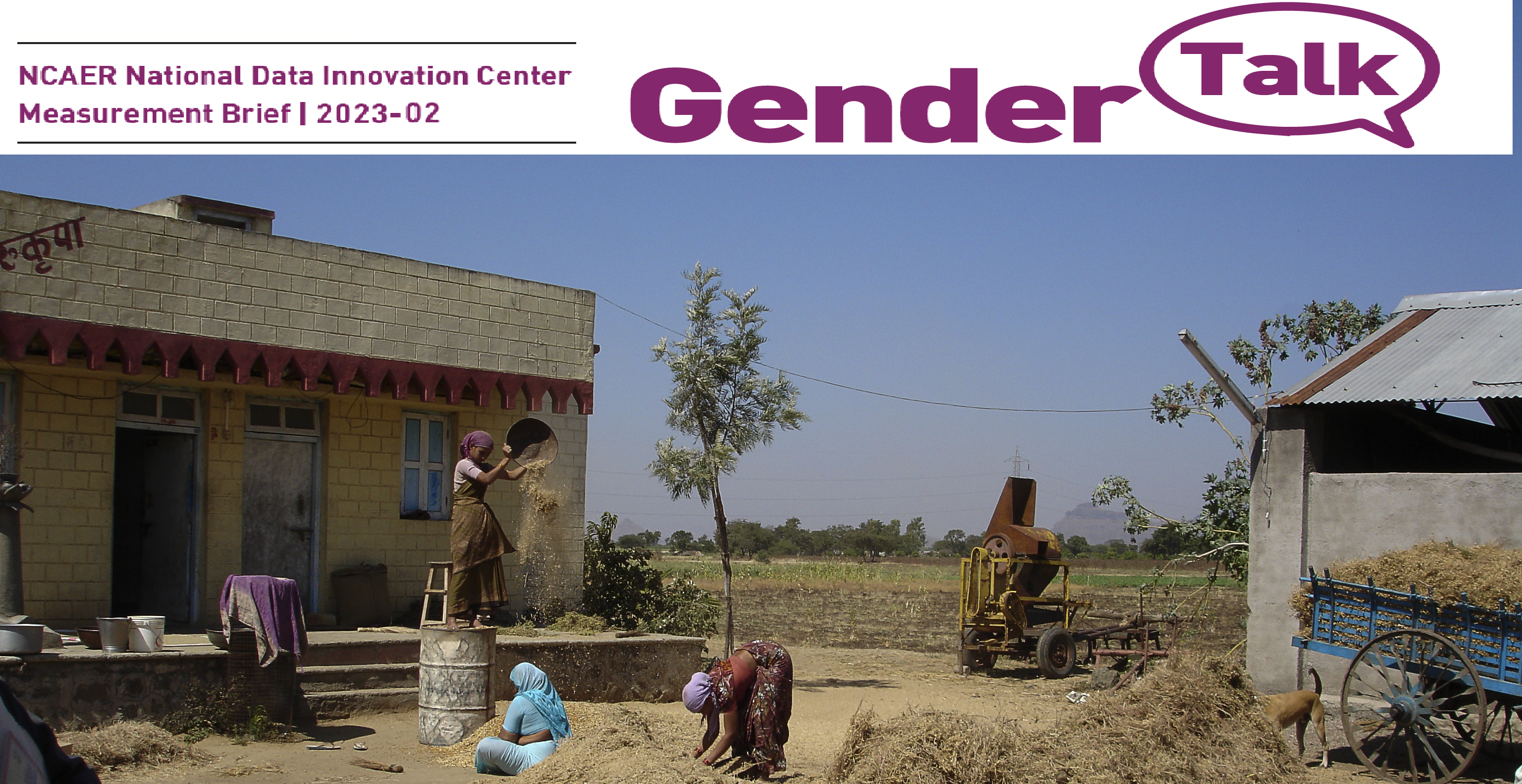
NCAER National Data Innovation Centre Measurement Brief | 2023-02 Welcome to the second issue of Gender Talk from the NCAER-National Data Innovation Centre's Gender Hub. In this issue of GenderTalk, we discuss about gender inequality in land rights. We bring you articles by researchers that highlight some of the challenges, followed by conversation with an... Read More
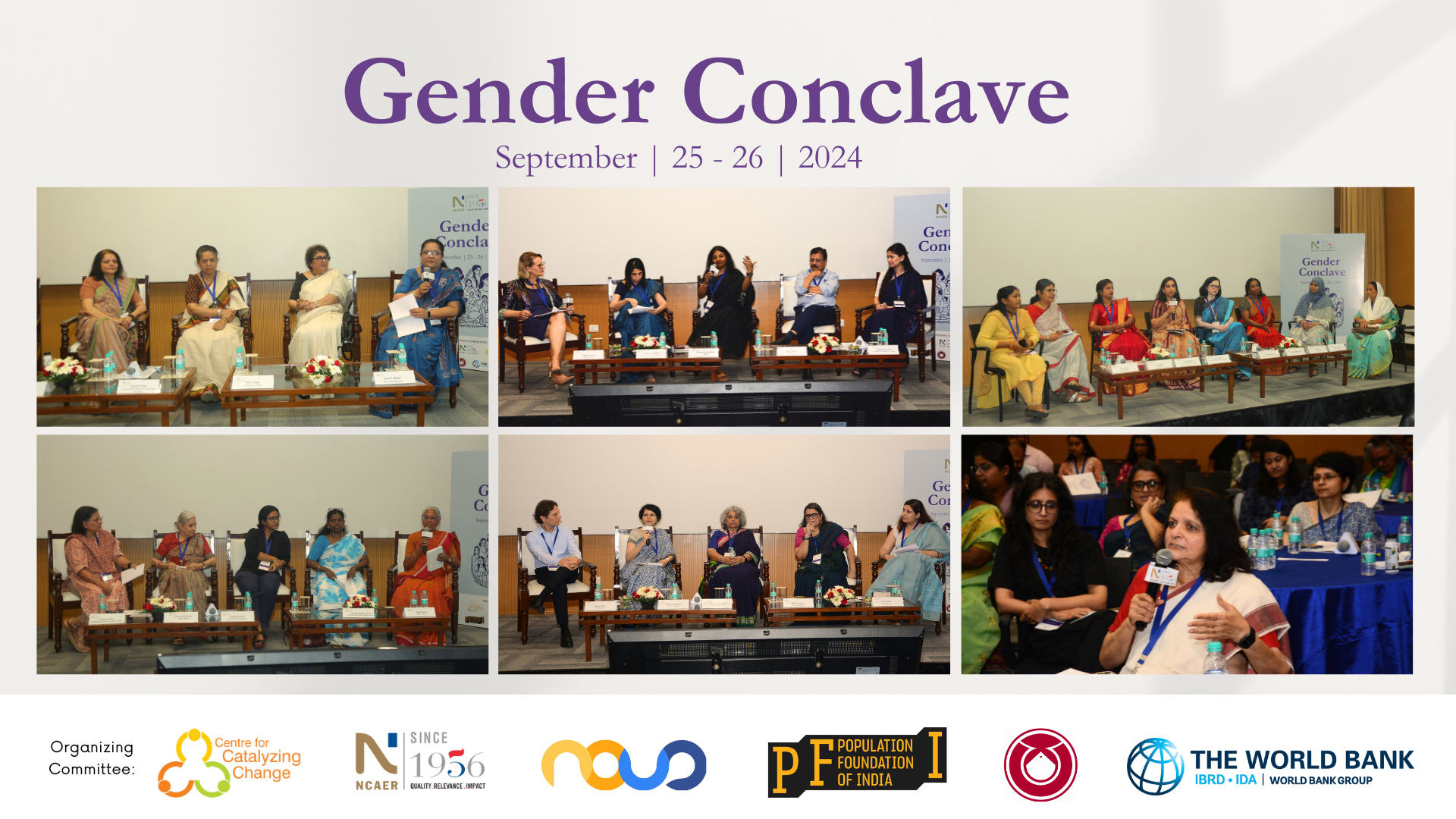
On 25th and 26th September 2024, the National Data Innovation Centre (NDIC) at NCAER organised a Gender Conclave with its partners, the Centre for Catalyzing Change, Nous Consultants, Population Foundation of India, Sewa Bharat and The World Bank. Over seventy public intellectuals hailing from sectors transcending policy, academia and development attended the in-person event. Gender... Read More
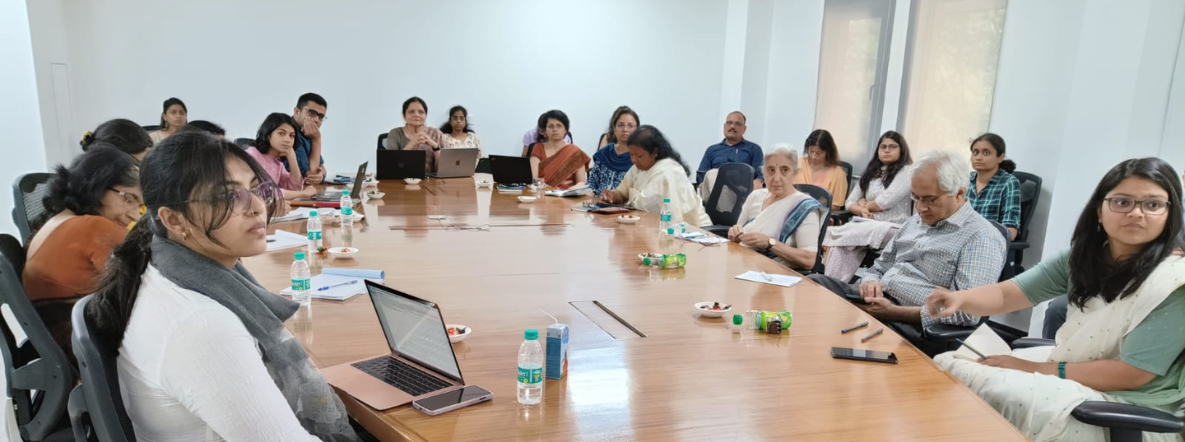
The NCAER Gender Hub and FESDIG (Feminist Economics Saturday Discussion Group) jointly organised a hybrid discussion on “What is Women's Work? Challenges of Measurement for Policy Design” on 12 June 2023, at NCAER. Despite the strong policy interest in women’s low and declining work participation in India, data and research on this subject continues to... Read More

After decades of feminist advocacy, it is now accepted as a part of conventional wisdom that all data collection systems should provide gender-disaggregated data. However, this ‘add gender and stir’ approach often fails to capture data that is critical for developing gender-friendly policies, especially data on care responsibilities, access to public spaces, and, discrimination in... Read More